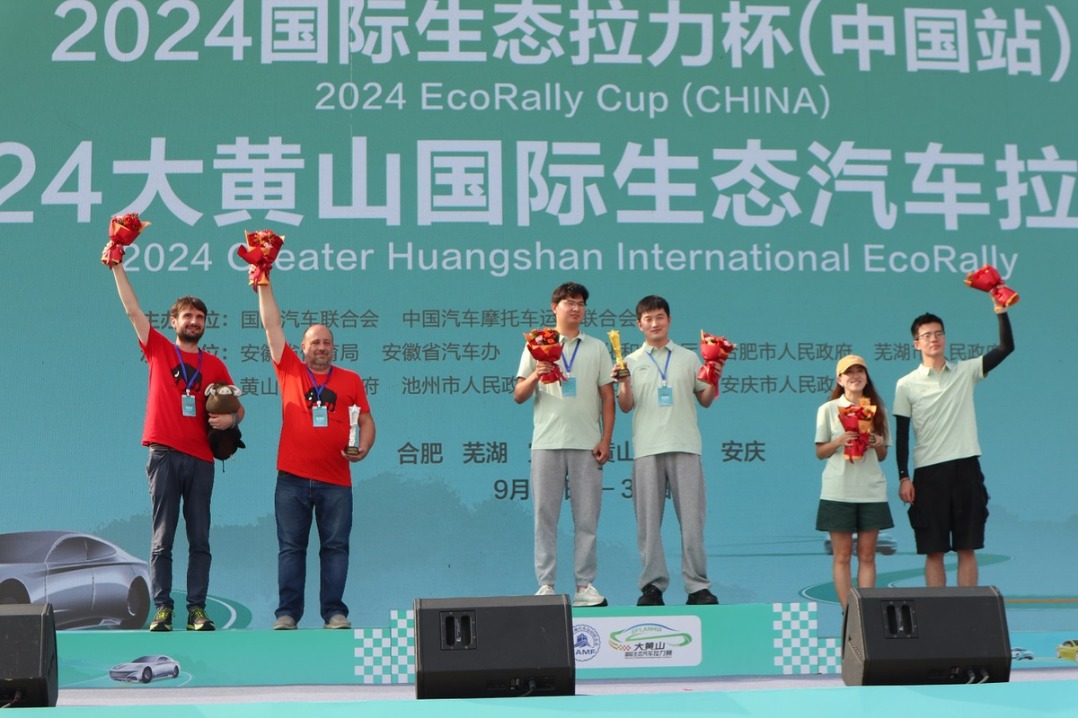People-centered approach key to China's strides

The Communist Party of China leadership has played a central role in modernization for the common good and in shaping policies based on China's people-centered human rights philosophy.
The Party's leadership provides the framework and direction for drawing toward "people-centrism", which aligns with its vision of social harmony and collective prosperity, ensuring the well-being and welfare of its citizens. Chinese have made enormous advances in the broadening of human rights around the globe. Today's Chinese governance has connected all Chinese citizens to the rest of the world.
Since its founding in 1921, the CPC has effectively focused on a path of its own for the advancement of human values. It is a path that is in line with the times as well as suitable for China's reality. The Party has continuously improved its efforts to better protect and respect the fundamental values, equality and rights of the Chinese people.
The CPC upholds the principle of people-centered development and places a high value on the rights of people to survival and development, with the aim of socioeconomic growth to improve quality of life. Unlike some developed countries, China as a developing country has long struggled with basic livelihood issue for its huge population.
The Party always prioritizes the rights of the people and works to improve their livelihood, which was long burdened by poverty, and to ensure their right to development and equal participation in social affairs, especially for women. Additionally, it works to deliver the benefits of reform and development to all people in a more equitable way.
In December 2018, President Xi Jinping sent a congratulatory letter to mark the 70th anniversary of the Universal Declaration of Human Rights. In the letter, Xi said that China adheres to a people-centered vision of human rights, considers the rights to subsistence and development as basic human rights, and works for coordinated development of the people's economic, political, social, cultural and environmental rights.
The aspirational concepts and notions of advancing socialism with Chinese characteristics are deep-rooted in President Xi's vision.
The CPC leadership has taken many measures to develop more efficient and advanced methods to protect the interests of individuals in the fields of economics, politics, society and culture. The initiatives aim to ensure equal representation for women in government and the discussion of social and political issues; protect the right to religious liberty of ethnic minorities; reform the youth and family court system to ensure that young criminal suspects receive a fair trial; and take steps to ensure that individuals with disabilities are able to obtain information about and participate in elections.
The CPC's philosophy is endowed with equality, fairness, comprehensiveness and inclusivity. It is based on compassion, mutual respect, tolerance and cooperation in the development of civilizations to promote the advancement of human rights alongside the principles and desires shared by all human communities.
The CPC's path and commitments to a people-centric human rights philosophy for social justice also emphasize economic development as a foundation for achieving other rights and freedoms, the principle of common prosperity, and fulfillment of basic needs and poverty eradication.
Under the CPC's leadership, China has experienced significant economic reforms and opening-up policies. These measures have contributed to lifting about 800 million people out of poverty and improving the living standards of all citizens. The Party believes that sustained economic growth is critical to creating favorable conditions for the realization of other human rights, such as education, healthcare and social security.
China's successes in reducing poverty, in particular, provide valuable lessons for other nations. The CPC leadership focuses on providing access to quality education and healthcare for all citizens. It recognizes these as fundamental rights and invests in initiatives to improve education systems, enhance vocational training and expand healthcare coverage.
The Party also emphasizes the importance of social security, aiming to build a comprehensive social welfare system to protect the wellbeing of its citizens. China is also devoted to the advancement of human rights at local, regional and international levels.
We can well expect that China will continue to work together with other nations to advance shared human values and uphold the ideals of equality and inclusivity, which will lead to more effective global governance on human rights. It has always actively participated in dialogue and cooperation with other parties based on equality and respect for one another in order to develop consensus and overcome differences.
China's achievement of moderate prosperity signifies an important moment in the development of human rights globally. The approach and experiences of China have offered a unique way for the advancement of humanity.
The author is executive director of the Pakistan Research Center for a Community with Shared Future.
The views do not necessarily reflect those of China Daily.





































